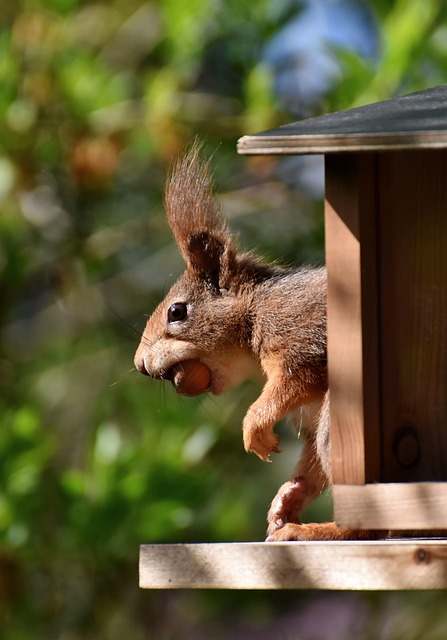Rodents, though often considered pests, play crucial roles in ecosystems worldwide. Effective and sustainable rodent management requires understanding their behaviors and ecological roles. Humane methods emphasize tailored solutions like habitat modification, sanitation improvements, live traps, and non-lethal repellents to minimize environmental impact and protect non-target species. Creating customized rodent control plans is ideal, involving regular inspections, data collection, and adaptive management for continuous improvement while preserving wildlife. Community involvement and collaboration are vital to achieving durable results with minimal environmental harm through optimized strategies.
In today’s world, humane and eco-conscious approaches to rodent management are more important than ever. This comprehensive guide explores effective strategies that balance the need for pest control with the preservation of our environment and the well-being of wildlife. From understanding rodent behavior and their ecological roles to comparing traditional methods with innovative, humane techniques, this article delves into designing tailored customized rodent control plans while emphasizing monitoring, maintenance, and community involvement.
Understanding Rodent Behavior and Their Eco-Role
Rodents, often seen as pests, play a complex and significant role in ecosystems worldwide. Understanding their behavior is crucial for developing effective yet humane and eco-conscious rodent management strategies. These creatures are integral to many environments, serving as prey for various predators and contributing to nutrient cycling through their activities.
Customized rodent control plans should consider these ecological roles. Instead of solely focusing on eradication, managing rodent populations sustainably involves understanding their habitat preferences and food sources. By implementing tailored measures, such as habitat modification, trap selection, or the use of natural predators, we can minimize the impact on both the environment and non-target species while effectively controlling rodent numbers.
Traditional vs. Humane Rodent Control Methods
In the realm of rodent management, traditional methods often rely on toxic chemicals and traps, which can be inhumane and detrimental to the environment. These conventional approaches may provide temporary relief but fail to address the root causes of rodent infestations. As a result, they contribute to ecological imbalances and pose risks to non-target species, including beneficial insects and wildlife.
Humane rodent control methods, on the other hand, emphasize tailored solutions that prioritize both human safety and ecological preservation. Customized rodent control plans involve a combination of strategies such as habitat modification, sanitation improvements, and the use of live traps or non-lethal repellents. These methods not only ensure the safe removal of rodents but also foster sustainable environments by promoting natural predators and deterring pests through non-toxic means.
Designing Customized Rodent Control Plans
In an ideal world, humane and eco-conscious approaches should form the backbone of any rodent management strategy. This involves designing customized rodent control plans tailored to specific environments and situations, ensuring minimal ecological impact. By understanding the habits and behaviors of rodents, professionals can implement targeted methods such as habitat modification, repellents, and non-lethal traps. These strategies not only reduce the need for toxic chemicals but also foster a balance between human needs and wildlife preservation.
Customized rodent control plans require collaboration between experts, property owners, and local communities. Regular inspections, data collection, and adaptive management are key components. This iterative process allows for continuous improvement, ensuring that control measures remain effective while minimizing harm to non-target species and the overall ecosystem.
Monitoring, Maintenance, and Community Involvement
Monitoring plays a pivotal role in humane and eco-conscious approaches to rodent management. It involves regular inspection and data collection to track rodent activity, population trends, and the effectiveness of control measures. By employing non-lethal methods like cameras, traps with quick release mechanisms, and pheromone monitoring, professionals can gather valuable insights without causing harm. This data informs tailored interventions, ensuring that control plans remain effective and sensitive to the environment.
Maintenance is another key aspect. Customized rodent control plans require ongoing vigilance and adaptation. Regular maintenance includes keeping properties clean and free of debris, sealing entry points, and maintaining proper waste management practices. Community involvement is equally crucial. Educating residents about signs of rodent infestation, promoting responsible pest management practices, and fostering a collaborative environment can significantly enhance the success of humane and eco-friendly rodent control initiatives.
In adopting humane and eco-conscious approaches to rodent management, we not only mitigate damage but also recognize the intricate role rodents play in our ecosystems. By understanding their behavior and implementing tailored strategies, such as customized rodent control plans, we can effectively reduce populations without causing undue harm. Community involvement and ongoing monitoring are vital to ensuring these methods remain successful, fostering a balance between human needs and the well-being of our natural world.
